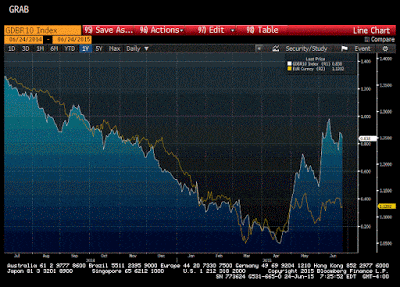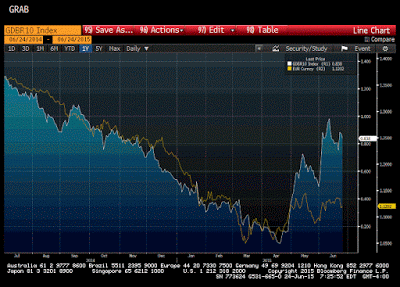Junk Bond Yields Soar as Defaults Rise
Junk bond yields have risen above 8% as investors’ fear a growing number of defaults are looming amidst weak sales and low commodity prices.
According to the Bloomberg World Bond Index, which measures high yield debt issued worldwide, the average yield of high-yield debt has risen to over 8%, while the yields on U.S. corporate bonds is nearing 8%. The yields on commodity-based company debt, particularly energy companies, is soaring the highest while bond prices fall.





